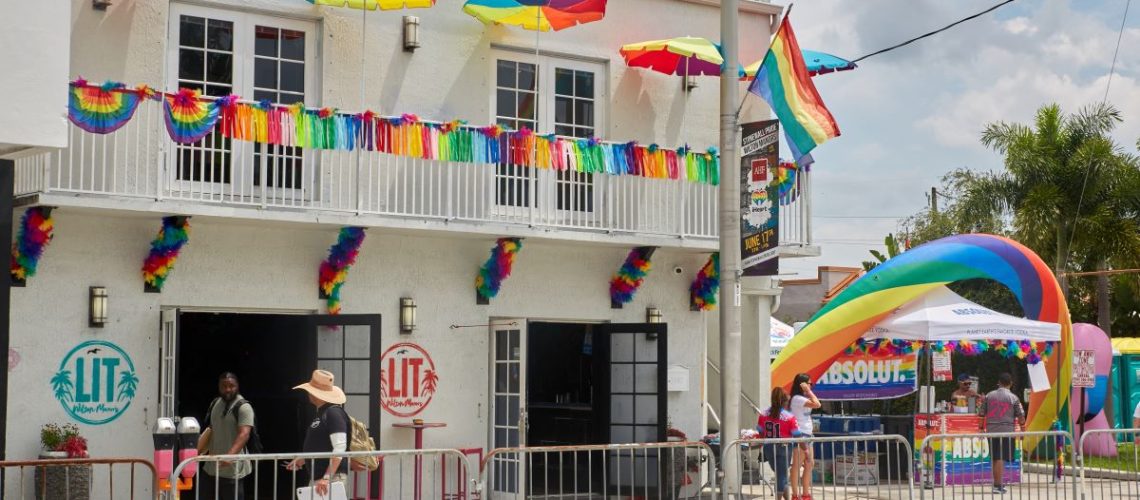Ever find yourself double-checking travel guides to see if your destination celebrates diversity or merely tolerates it? You’re not alone. LGBTQ tourism, once a rapidly growing sector, faces new challenges as destinations deal with balancing welcome mats and legislative hurdles.
Florida’s Fading Rainbow
Once a beacon of inclusivity for LGBTQ+ travelers, Florida’s tourism industry is showing troubling signs of decline. The removal of LGBTQ-specific content from the state’s official tourism website, VisitFlorida.com, has been a glaring indicator of the state’s recent shift. This change comes amid a slew of anti-LGBTQ legislation that has left the community feeling alienated.
In particular, laws limiting discussions on sexual orientation and gender identity in educational settings and public spaces have signaled an increasingly hostile environment. Such policies are now deterring LGBTQ+ visitors who once flocked to cities like Miami, Key West, and Fort Lauderdale, known for their inclusive atmospheres.
This change hasn’t gone unnoticed by tourism industry insiders. Rachel Covello, founder of OutCoast, a blog focused on LGBTQ travel in Florida, said, “it’s just disgusting to see this. They seem to want to erase us” and pointed out the negative financial implications of the move.
Florida’s tourism sector is undeniably critical to the state’s economy. In 2023 alone, tourism contributed over $102 billion, supported 2 million jobs, and drew 140 million visitors.
As these numbers suggest, alienating a key demographic like LGBTQ+ travelers could have serious financial ramifications. Historically, LGBTQ+ tourists spend more on average during their travels than their non-LGBTQ counterparts, which only amplifies the potential damage.
A National Concern: Echoes Across the States
Florida is not the only state facing backlash over anti-LGBTQ policies. Across the U.S., states enacting restrictive laws are witnessing a decrease in tourism interest. North Carolina provides a potent example of how damaging these policies can be. In 2016, the state passed the now-infamous “bathroom bill” (HB2), which required individuals to use bathrooms corresponding to their sex at birth.
The response was swift and severe—boycotts and cancellations of major events by organizations like the NBA and businesses like PayPal led to an estimated loss of over $3.7 billion in potential economic activity.
Similar Stories
Similar trends are visible elsewhere. Texas, which has pursued anti-LGBTQ legislation, is also facing growing scrutiny from LGBTQ+ organizations. Studies show that nearly 69% of LGBTQ+ individuals actively boycott or reconsider visiting states with discriminatory laws.
These states face a difficult challenge: balancing conservative policies with the economic realities of a tourism sector increasingly driven by values of inclusivity and acceptance.
A report from the International LGBTQ+ Travel Association (IGLTA) highlighted the growing tension between legislation and tourism. According to the report, 87% of LGBTQ+ respondents said that anti-LGBTQ policies would make them less likely to visit a destination, indicating the broader implications for states like Florida, Texas, and others that continue to pursue such legislation.
Economic Ripple Effects: The Cost of Exclusion
For states like Florida, the economic cost of these policies is becoming increasingly apparent. LGBTQ+ travelers and event organizers are reconsidering Florida as a destination. According to recent surveys, 52% of U.S.-based LGBTQ+ event planners now express reluctance to host events in the state due to its anti-LGBTQ policies.
This hesitation is significant, considering Florida has long been a prime location for LGBTQ+ events, such as Pride celebrations and business conferences.
Furthermore, the potential loss of these high-spending travelers represents a direct threat to businesses that have traditionally benefited from LGBTQ+ tourism.
In cities like Wilton Manors and Key West, which have thrived on their reputation as LGBTQ-friendly, the effects of this shift could be devastating. Stacy Ritter, President of Visit Lauderdale, voiced concern that VisitFlorida’s recent moves don’t align with the values that they want to represent at Visit Lauderdale. Local tourism boards in inclusive cities are increasingly at odds with state-level decisions that seem designed to alienate the very communities they rely on.
Embracing Diversity in Tourism
Despite these challenges, many in the tourism industry remain optimistic that the tide can turn. Industry experts argue that embracing diversity, equity, and inclusion (DEI) is the best way forward—not just as a moral imperative but as an economic one. John Tanzella, President of IGLTA, emphasized that inclusive tourism can drive both economic growth and cultural understanding, making destinations more appealing to a wider array of travelers.
For example, California and New York—widely regarded as LGBTQ-friendly states—have become top destinations for LGBTQ travelers. In 2023, 61% of surveyed LGBTQ+ respondents indicated they were likely to visit California, and 58% planned trips to New York.
These states have successfully marketed themselves as inclusive havens, attracting LGBTQ+ visitors and their allies by promoting values of acceptance and diversity.
The larger U.S. tourism industry is also recognizing the financial power of LGBTQ+ travelers. A report from the UNWTO and IGLTA noted that LGBTQ+ tourism has experienced continued growth globally, with destinations that embrace inclusivity seeing economic benefits. In contrast, those who adopt exclusionary practices face not just immediate boycotts but long-term reputational damage that could hinder future growth.
What’s Next?
With tourism generating billions of dollars annually, it’s clear that the industry’s future success will rely on destinations’ ability to embrace diversity. Whether Florida and other states can strike a balance remains to be seen, but one thing is certain: LGBTQ+ travelers are watching, and their wallets carry significant weight.
Featured Image Credit: Shutterstock / YES Market Media.
The images used are for illustrative purposes only and may not represent the actual people or places mentioned in the article.
For transparency, this content was partly developed with AI assistance and carefully curated by an experienced editor to be informative and ensure accuracy.

